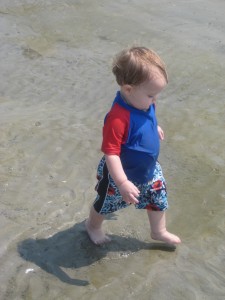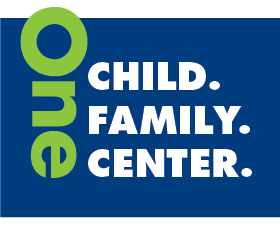Out of the Desert: Navigating Autism and Therapy
Healthcare professionals often ask me what services my son with Autism receives and what I think of them. My response often surprises them I say “It’s like being kidnapped and left in a desert with nothing.”
As parents, when our children are diagnosed with Autism Spectrum Disorder, we are often given a long list of recommended therapy services and told to seek out these services in order to provide our children with “as much, as soon as possible.” In that moment we find ourselves left in the desert landscape of a medical/therapy world that is very unfamiliar. We’re given a list of therapy services that we may or may not have ever heard of before such as Applied Behavioral Analysis (ABA) or Occupational Therapy, and maybe a few we are more familiar with like Speech or Physical Therapy. Then we are told to find these life sustaining needs but we have no real understanding of what they are, where they are, how to find them, and most importantly how to afford them. In every direction, there is sand with no roads, water, food, or shade in sight.
There is not a known cure for Autism; it is a neurological disorder with life-long effects. Children with Autism are neither broken nor burdens; they are a gift like every other child. My son laughs, plays, and feels deeply. He loves to play “chase” (his own version of tag), indoor basketball, and soccer with his siblings or climb into his parents laps. He also has strengths and weaknesses like everyone else in our family. As parents, it is important to remember the journey we encounter is not because our children are any less than other children. Rather, society’s inability to support them has created the desert landscape that we must traverse.
So, we slowly trudge through the process researching the various types of therapies, navigating the complicated world of insurance companies, and finding therapy providers. Only to discover the moment we think we have found that necessary therapy service –it’s a mere mirage. A mirage predicated on waiting lists and insurance companies that will not cover services for conditions not related to an accident in children over the age of 3. However, through perseverance we forge a path in the sand, we educate ourselves, we fight insurance companies, we make financial sacrifices, and travel significant distances in order to provide these services to our children.
This may not be every parent’s experience (almost certainly not for parents that in live in states with better Autism support services), but it was mine 3 ½ years ago when my son was diagnosed with Autism. In the years following his diagnosis, I’ve realized that my reality IS the reality for many parents in our community. One Child Center for Autism was founded in part for this reason. There is not a map for navigating the world of Autism Spectrum Disorder. We are told that no child is alike and “Once you’ve met One Child with Autism, you’ve met One Child with Autism”- Stephen Shore. Likewise, there is not one “right” way to journey through the world of Autism. I believe strongly we can empower and help our children learn how to navigate a world that is very unfamiliar to them.
I began One Child out of a love for my son and a desire to help our community find a path out of the desert of inaccessible therapy, financial distress, and uncertainty. But helping the child is only part of One Child’s mission. I’ve come to realize that we are each stronger – and I am stronger – when there are people in our lives that acknowledge and support our family’s journey. To that end, One Child strives to create a space that not only provides support for our children with Autism but also a place that cares for the entire family unit – one that considers the well-being of the parents and siblings. For if we do not also support the caregivers and the future caregivers we are doing a disservice to our families. My hope for One Child is that it will serve as an oasis, a place where children and families affected by Autism are given the tools and support to more easily conduct their lives.
One Child is steered by a vision of hope and acceptance. We understand that there are many divisive issues surrounding Autism but we believe that the differences do not and should not alienate us from others affected by Autism. Our differences should not prevent us from working to create a central place where families affected by Autism can embrace their journey out of the desert, find respite, and create hope. In striving toward these aims I believe we will find that despite our many differences, our shared experiences unite us. Let’s celebrate our children and find space to support each other as we do the best for our families.
The desert is not our destination; it is merely the starting place from which we begin our journey.
Julie Cullifer
Co-Founder, One Child Center for Autism




Your essay is Beautiful. Thank you for all you do, Julie.